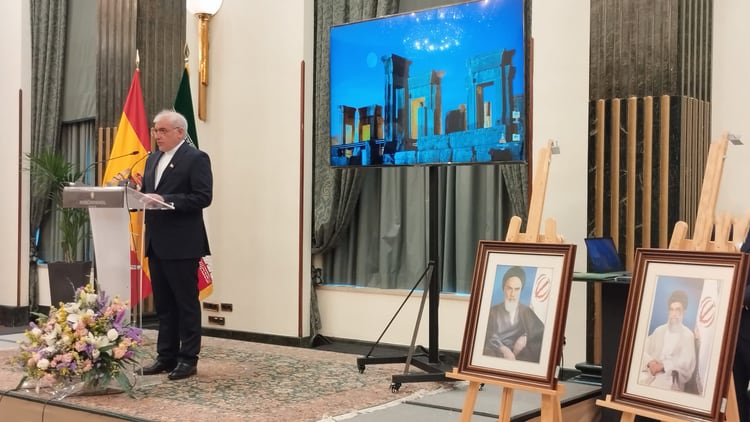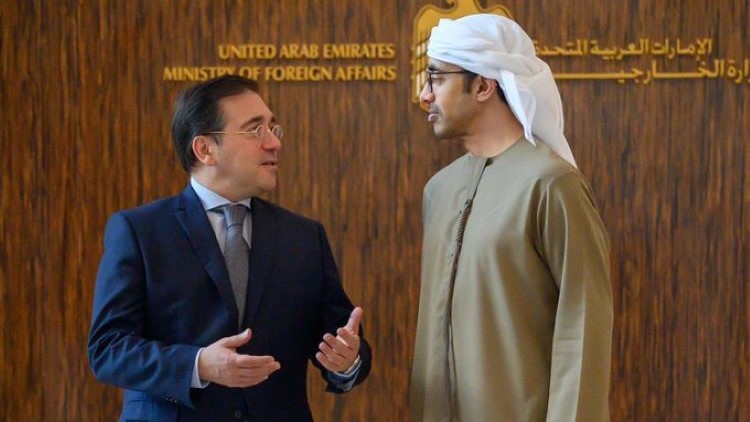The Diplomat
Iran’s Ambassador to Madrid, Reza Zabib, yesterday thanked Spain for its support for the Palestinian people and especially for increasing its contribution to UNRWA, the United Nations Relief and Works Agency for Palestine Refugees in the Near East.
In a speech at the reception to mark the 45th anniversary of the Iranian Islamic Revolution, Reza Zabib recalled that Palestine has always been a key issue for Iran’s foreign policy and described as a “bloody tragedy” what is happening “in Gaza and even in the West Bank”, in reference to Israel’s actions, although without mentioning that country by name.
The ambassador affirmed that “it is everyone’s responsibility” to put an end to this “bloodbath” and “bring those who perpetrate it to justice“. In this regard, he said Iran admires “South Africa’s courageous initiative to take the case to the International Court of Justice, based on the Convention on the Prevention and Punishment of the Crime of Genocide”.
Reza Zazib then took the opportunity to “acknowledge Spain’s valuable assistance to the Palestinian people, especially by increasing its contribution to UNRWA”. Recently, Spain, unlike other European countries, not only did not suspend its aid to UNRWA after it became known that a dozen of its employees may have been involved in the 7 October terrorist attack on Israel, but announced a 3.5 million euro increase in its contribution to the agency.
Stressing the “right to resistance after occupation”, the ambassador assured that, since the beginning of the war, Iran has supported an immediate ceasefire and humanitarian access to the Palestinians. At the same time, he insisted that his country has been in favour of the Palestinian nation’s right to self-determination.
Reza Zazib also affirmed that, in foreign policy, Iran actively supports the principles of international law, and has been “a great contributor to peace and stability, capable of ending such a dangerous threat as ISIS and a safe haven for millions of refugees in the region”.
In another development, the ambassador said that despite the sanctions against Iran, oil exports have almost reached the level they were at before these measures were taken. He added that other exports continued to outpace oil revenues for the third year in a row, and the IMF reported economic growth of 5.4 per cent in the country.
The reception was attended by numerous ambassadors from different geographical areas, including Russia’s Yuri Klimenko, Nicaragua’s Maurizio Gelli, Saudi Arabia’s Azzam bin Abdul Karim al-Qain, Qatar’s Abdalla Al-Hamar, Kuwait’s Khalifa Mohamed KH H H Al Kharafi and Sudan’s Maha Suleiman Taha Ayoub, as well as a large group of Asian ambassadors and several ambassadors from the European Union and African countries.
The Ministry of Foreign Affairs was represented by the Deputy Director General for the Middle East, Pablo Pérez Guerreira.












